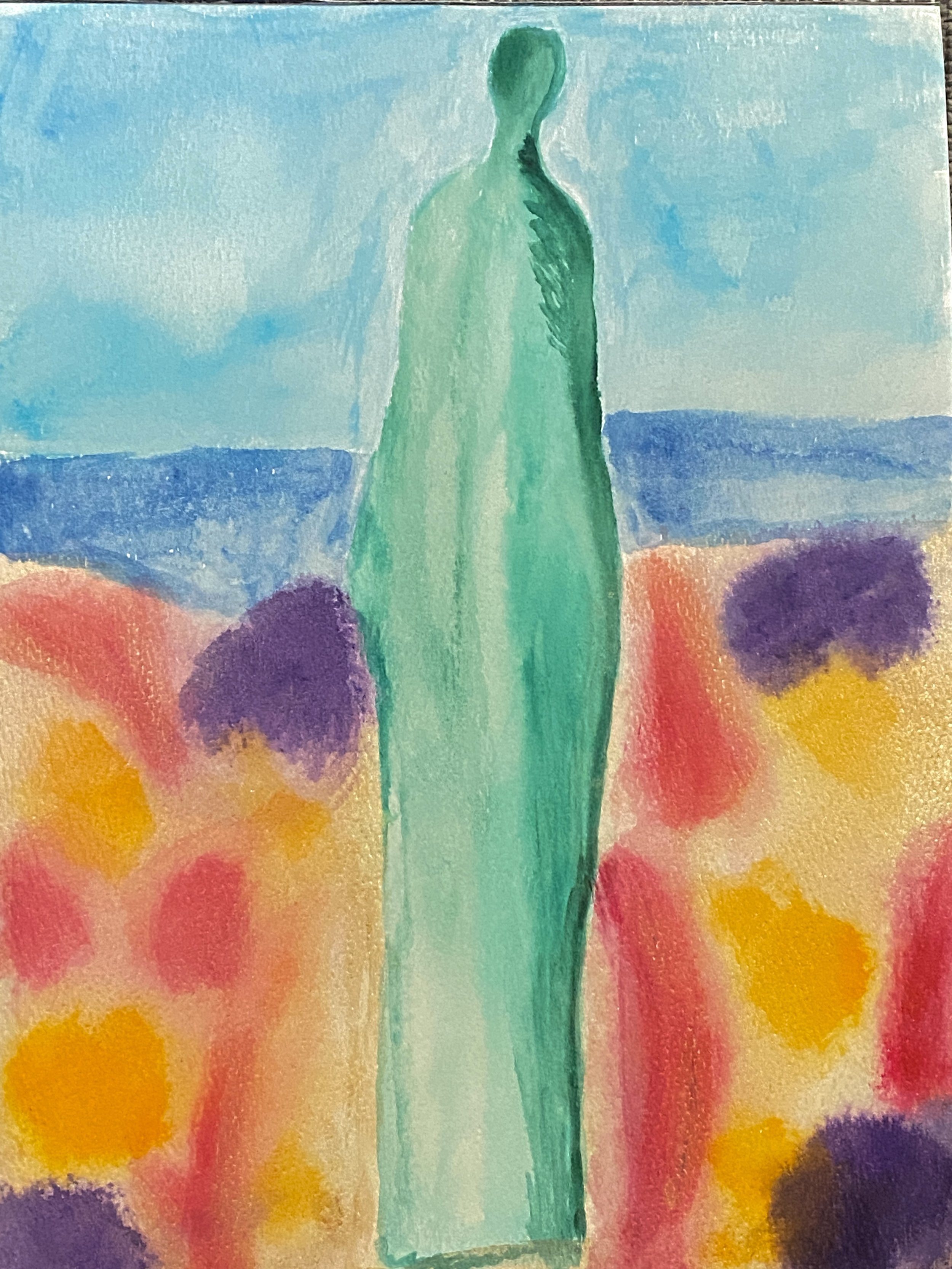When Water Was Still an Element,
“Stranger on the Shore” by Toni La Ree Bennett
no one needed it in writing.
Lakes were lakes, and you could see them
or wait until spring
after the ice-break.
Rivers would trace the earth’s outlines
brown or blue,
like math,
like a set of logical givens.
And it was a given, and it still is math;
it’s the people who are minus signs:
Drain it all faster than it rains or snows,
and there you go.
≈
They elected me to say that,
to be the Listener-Recorder,
to collect their stories,
share them back,
and add my own,
and maybe be a lighthouse too—
part watcher-over, part warning;
it’s a growing list.
But we need a different catalog.
Everyone’s sick of the wreckage.
They want to remember why it matters
in case it ever rains.
≈
I’m not sure I can do it.
Here’s what a guy said this morning.
He said, “The Bering Sea
isn’t cold enough now for crabs.”
He’d worked those boats,
and there were ice bergs.
He’d worked those boats
when he was finished with navy.
“The crabs used to number nine billion,” he said,
“so zero’s less, you know what I’m saying?…
Anyway, I hope you do
’cause I sure don’t.”
≈
I probably can’t do it, not really.
But this is what I know about shoveling,
about missing that work,
and almost the backache too
from the snow’s wet weight,
the bending into it.
You stand there, sweating in the cold,
and see results:
see the white banks piling up,
see the sidewalk,
the path to the door,
and you’re the one who made that happen,
you and cold,
you and quiet
since the traffic’s down
and the tire-sounds are muffled.
Then you carve out a place for your wife to park.
And then she’s home.
≈
And there were daffodils too,
these yellow cups rising through the dirt.
They’d shoulder their way past winter,
then fill up with rain.
≈
She says, “They always had almonds in the grocery store.
How is that even possible?”
≈
He says, “I wish I would’ve stood in that waterfall
when it was here.”
≈
One friend remembers her sister.
She says, “At least she died
before the worst of it.
Seeing this river empty
would’ve made her cry.
She used to come rafting here.”
One friend used to be a ski instructor.
And one kid brings me a map.
He’s fourteen,
above-average angry:
“You mean, this was real?
Like all of this blue was really water?”
One friend always wears
steel-toed boots,
and his daughter’s always wearing
that butterfly costume.
“I have to,” she says, “so they can find me.
And I’ll bring one to you.”
About the Author
Rob Carney is the author of the flash-essay collection Accidental Gardens (Stormbird Press 2021) and eight books of poems, most recently Call and Response (Black Lawrence Press 2021) and The Book of Sharks (Black Lawrence Press 2018), which won the 15 Bytes Book Award in 2019. He is a recipient of the Milton Kessler Memorial Prize in Poetry, the Robinson Jeffers/Tor House Foundation Award for Poetry, and a featured contributor to Terrain.org. He lives in Salt Lake City.
About the Artist
Toni La Ree Bennett’s verbal and visual work has appeared in Cimarron Review, Caesura, Gold Man Review, Cirque, Gravel, Puerto del Sol, Hawaii Pacific Review, december, and Memoir, with a poetry chapbook publication by Finishing Line Press, Solar Subjugation, among other publications. Samples can be seen at www.tonibennett.com.

